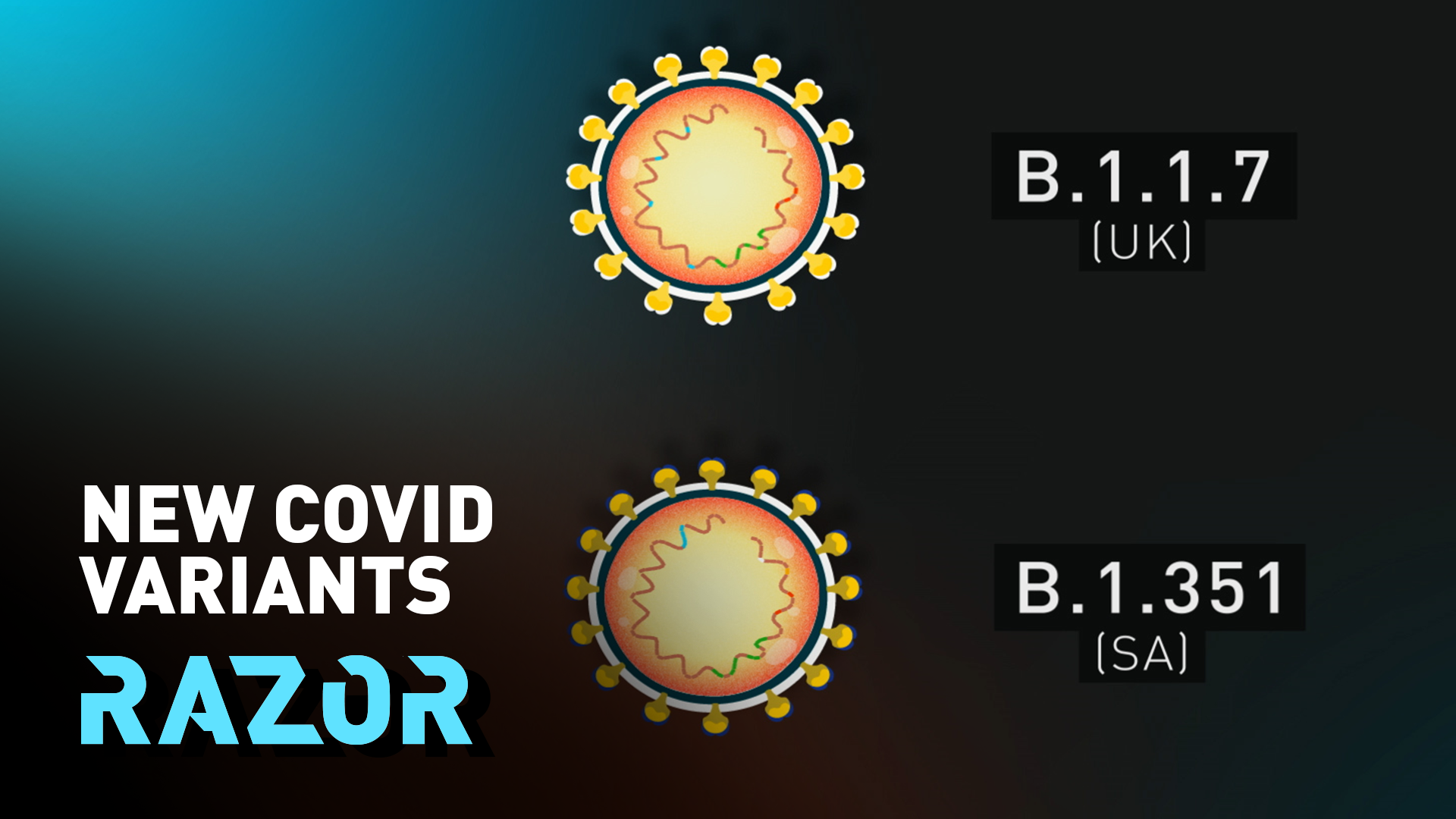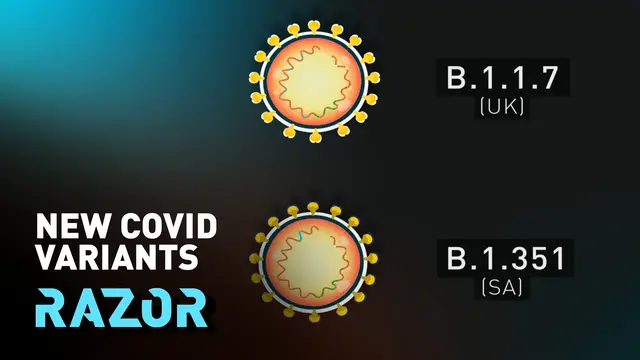10:52

From South Africa and Brazil to the UK, new variants of the SARS-CoV-2 virus are regularly being discovered, coinciding with an accelerating international vaccination program.
Although this is a normal development, these latest variants are causing alarm. They are fast-spreading, inflicting further waves of infection on already overwhelmed hospitals and medical services. And it's too early to know the extent to which existing vaccines will provide immunity to these variants.
Spain's theaters stay open despite pandemic
Tips to cut COVID-19 inside homes
How VR's moved from gaming to offices
The SARS-CoV-2 virus has mutated once or twice a month since first being identified, but the new variants have shown extensive change, with the variants first discovered in the UK (B.1.1.7) and South Africa (B.1.351) possessing mutations which have made them between 40 percent and 70 percent more infectious.
It is currently unknown how the UK-discovered variant made so many mutations at once, unprecedented compared with the previous strains.
One theory is that it occurred when COVID-19 patients were treated with convalescent plasma – which is taken from patients who have recovered from COVID-19 and given to those suffering with the disease to try to provide a form of immunity.
The treatment can be "perfect for the virus to then just keep going and then acquire mutations," clinical microbiologist Ravi Gupta told CGTN Europe's
RAZOR
.
He added that convalescent plasma treatment "needs to be done in a controlled environment where we minimize the risk of passing on those variants that are generated."
Updating vaccines to fight mutants
The threat posed from the mutant strains is still unknown, but scientists are hopeful that the revolutionary mRNA vaccines will be sufficient to nullify the danger from the new strains.
BioNTech has stated that it can update its mRNA vaccine, which it developed with Pfizer, at speed to respond to any new variant that reduces its efficacy.
After the discovery of the new strain in the UK, BioNTech's chief executive Ugur Sahin said "The beauty of the messenger mRNA technology is we can directly start to engineer a vaccine that completely mimics this new mutation and we could manufacture a new vaccine within six weeks."
Developed as far back as 1990, mRNA vaccines have come to the fore during the COVID-19 pandemic. They teach our cells how to make a protein – or even just a piece of a protein – that triggers an immune response.
Sahin and his team note that enough parts of the virus haven't mutated, meaning that they can simply tweak their existing vaccine.
 简体中文
简体中文

